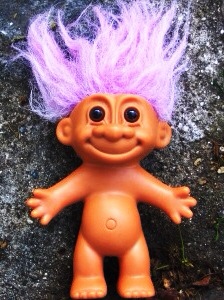
Sorry. Trolling, bigotry and spreading nasty abuse online makes you a jerk offline. Even if you're kind to kids and animals. Or religious.
That’s actually something I said about somebody. And I meant it, as harsh as it sounds. I didn’t say it to them, I didn’t say it publicly, nor did I post it online here or elsewhere. It was my personal opinion at the time, provoked by their actions. They stand out in my mind as one of the very few people I’ve met I had absolutely no time for.
Here’s (below) a good article which resonates with me in terms of the ‘I-disagree-with-their-apparent-worldview-but-now-that-I’ve-met-them-I-quite-like-them-as-a-person’ experience that I talk about here from time to time. (The one that some people just don’t seem to ‘get’ — or ‘grok’).
The “Daily Show” guide to my enemies
As a producer, I met people whose political views I detested. The hardest part was admitting they weren’t so bad
by Michael RubensFor two years I was a field producer for “The Daily Show With Jon Stewart.” The field producer is the person who guides the creation of the pre-taped segments, the ones where the correspondent travels somewhere to interview and heartily agree with some person who holds, uh, fascinating ideas about the world. This meant I spent a lot of time with people whose causes or philosophies I found blecchy — the sort of folks who would fit nicely in the overlap of a Venn diagram whose circles included Bachmann supporters, fans of Rush Limbaugh, and people who wear tricorn hats and exercise their Second Amendment rights at Tea Party rallies. You know – assholes.
Now, I like to loathe people. It just feels so good. I particularly like to loathe the sorts of people described above, and when I see them on TV or read their blogs I sigh contentedly and say, ahhh, it is now morally permissible for me to loathe this person. So imagine how irksome it was to have to deal with persons like that on a constant basis and discover that those persons, in person, generally weren’t loathsome persons after all. In fact, to my great consternation and disappointment, I often liked them.
People’s actions and tactics CAN BE different to who they are, just as Rubens relates. It’s important to cut each other some slack, I believe, as he and Jon Stewart suggest. I really try to keep the door open to people, although I have been betrayed.
That said, there’s a line, and I’ve learned sympathy for the idea that if you’re an a**hole online, you’re just an a**hole.
It doesn’t matter if you’re kind to animals and try to be a good dad. If you spend your time spewing lies and hateful things online, it doesn’t impress me if you’re ‘good company’ over a mochachino.
As writer Justine Larbalestier puts it in an eloquent article Online versus Offline behaviour :
I am no longer interested in hearing how lovely a particular person is in real life when they are a bully and a bigot and a troll online. I’ll go further than that it no longer matters to me if I have met said nasty online person in real life and have found them perfectly charming. Behaving well in only one or two spheres of your life does not make you a good person. Treating people with contempt speaks volumes. Always.
The internet is real life. What you say and how you behave in the land of livejournal or facebook or myspace or wordpress blogs or elsewhere is real behaviour. Those words are real and have real affects even if you turn around and delete them.
Why are there people who do not understand this?
Exactly.
– P

